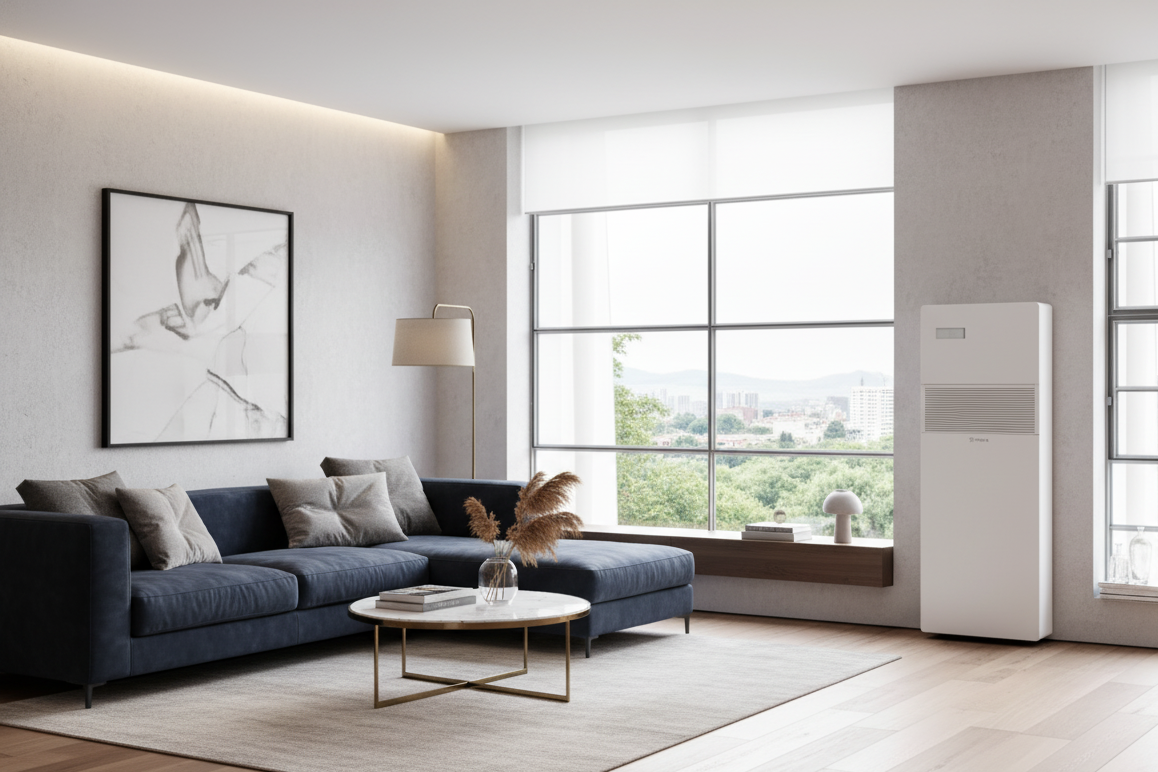Alternatives to Central Boiler Systems: Smarter HVAC Without the Infrastructure Burden
Traditional central boiler systems have long been the backbone of heating infrastructure in residential, commercial, and institutional buildings. However, their significant space demands, high upfront costs, and ongoing maintenance requirements are rapidly rendering them outdated. While some developers still consider modern boilers or traditional HVAC setups, these options come with persistent infrastructure challenges and limited flexibility. In contrast, Gigawatt specializes in advanced, decentralized HVAC technologies that eliminate massive boiler rooms, copper piping, ductwork, risers, and mechanical chases without sacrificing comfort or efficiency. These smarter, scalable heating and cooling solutions are tailored to the needs of today’s builders, developers, and property managers.
The Problem with Central Boiler Systems
For decades, central boiler systems were considered the default choice. But today, their challenges—such as extensive infrastructure, high upfront investment, ongoing maintenance, and limited design flexibility—make them less practical. Key issues include:
Extensive physical infrastructure: Boiler rooms, ductwork, risers, and chases consume valuable space.
High upfront costs: Large-scale installations have significant material and labor expenses.
Maintenance burden: Central systems have many components prone to failure and frequent upkeep.
Design constraints: Architects and developers face limitations in mechanical layouts.
Loss of usable space: Mechanical chases and boiler rooms reduce rentable and functional areas.
These issues culminate in higher costs, reduced operational efficiency, and missed opportunities to optimize building layouts.
Modern Alternatives to Central Boiler Systems
The market offers several alternatives to central boiler systems, but not all solutions provide the efficiency, space savings, and design flexibility developers demand today. At Gigawatt, we focus on delivering advanced decentralized HVAC technologies that eliminate the burdens of traditional infrastructure and maximize building value.
While Variable Refrigerant Flow (VRF) Systems, ductless mini-splits, and conventional air-to-water or air-to-air heat pumps remain common HVAC options, Gigawatt focuses instead on solutions that offer greater integration, streamlined installation, and centralized efficiency benefits.
Gigawatt specializes in Packaged Terminal Heat Pumps (PTHPs) and innovative fuel-switching ducted heating and cooling systems (such as Innova), which are engineered to streamline building design, reduce mechanical infrastructure, and unlock valuable real estate.
Variable Refrigerant Flow (VRF) Systems
VRF systems provide multi-zone comfort with refrigerant-based heat transfer that reduces ductwork and piping. While effective for certain applications, Gigawatt recommends solutions that minimize complexity and central infrastructure further.
Ductless Mini-Split Systems
Ductless mini-splits offer quick installation and zone-specific control primarily for smaller or retrofit projects. However, Gigawatt’s portfolio prioritizes scalable, integrated solutions that better meet the demands of larger modern builds.
Air-to-Water and Air-to-Air Heat Pumps
These heat pumps efficiently replace boilers by delivering heating and cooling with minimal infrastructure. Gigawatt’s products complement these technologies by integrating fuel-switching advancements and ducted designs that optimize comfort and space use.
Packaged Terminal Heat Pumps (PTHPs)
This is a core offering within Gigawatt’s lineup, widely trusted in multi-unit residential and hospitality sectors. PTHPs provide compact, all-in-one heating and cooling that removes the need for central boiler rooms or complex piping—delivering predictable performance and ease of servicing.
Benefits of Decentralized HVAC Solutions
Switching from central boilers to decentralized alternatives comes with several compelling benefits:
Lower installation and maintenance costs: No massive mechanical rooms or complex piping.
Space efficiency: Free up rentable or usable square footage.
Faster installation timelines: Especially valuable for retrofits or projects with tight schedules.
Improved tenant comfort: Zone-specific control avoids the one-size-fits-all problem of central systems.
Future-proofed flexibility: Easy to reconfigure or expand during renovations or building repurposing.
These advantages make decentralized HVAC a strategic choice for developers, engineers, and property owners seeking long-term value
Conclusion
Central boiler systems are no longer the practical default they once were. With rising demands for efficiency, space savings, and design flexibility, decentralized HVAC technologies—such as Gigawatt’s advanced fuel-switching solutions and ducted Innova units—are taking center stage. For developers, engineers, and property managers, the message is clear: the future of HVAC is decentralized, delivering smarter design, improved tenant comfort, and lasting quality value.
If you are evaluating decentralized HVAC strategies, Gigawatt offers the technical expertise and innovative solutions to help you move beyond outdated boiler systems. From design integration to implementation support, our team guides engineers, architects, and developers in selecting the right high-performance technologies—ensuring predictable efficiency gains, easier system coordination, and reclaimed real estate that drives long-term building value. Get in touch today to learn more.



